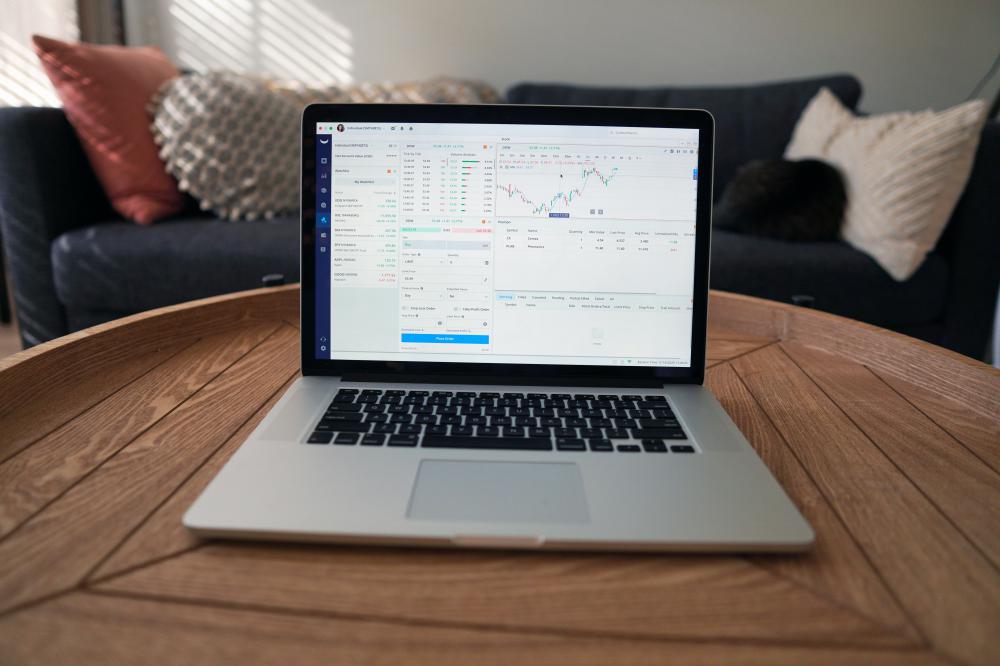In case you missed it see what’s in this section
Let's Talk
Your Total Guide To business
Trading Psychology: The Path to Becoming a Successful Trader
Trading is a mind game to be honed. Read on to find out more.
Trading Education is a Mental Process
When engaging in Forex trading, being in the market can be daunting and stressful, and if you’re not clear-headed can get you stuck in patterns that lead to disappointing portfolio performance. In this article, we will explore what mindset makes a competent trader and how you can utilise this mindset to become a better investor and see the results of your improved mindset reflected in your foreign exchange trading journey.
Beginners go through phases as they refine their mentality and learn to trade. The steps that a novice trader could goes through when learning how to trade are described in the model that follows, these are the five phases of learning to trade.

1. Unwilling incapacity
The first stage a trader experiences, is when they are unaware of their lack of understanding. Beginner traders will now take their initial actions by downloading a trading platform, creating an account, and starting to place trades.
They are, nevertheless, emotionally susceptible and are frequently seduced by the prospect of making a large sum of money quickly.
For traders at this time, one of the following two outcomes is most likely:
The transactions quickly go against the trader. Because they lack experience, they can only watch while their trading capital is depleted by losing deals. To be on the "right side of the market," they could even close their trades and open positions in the other direction, only to have those positions swing against them as well. To deal with the market climate, they just lack the necessary experience.
Initial trades are successful, but out of a false sense of security, rookie traders take significant risks without having a fundamental understanding of risk management, wiping out all of their prior gains and more.
The trader may eventually go to the following level or decide to cease trading altogether.

2. Willful inefficiency
At this point, traders are aware of their desire to study. New traders will attempt to apply what they have learned through books, articles, DVDs, and forums because they believe that the more trading information they have, the better they will be able to trade.
Beginners also seek out costly "experts" for advice and fall prey to "get rich quick" schemes.
The trader starts to attribute failed deals to tactics or "wrong" information they were given when they continue to have poor results, rather than to their actions.
Everyone is different; therefore, this period could last a week, or it might endure for several years.
For any rookie trader, the stage of conscious ineptitude is the most hazardous.
3. The Awakening
Traders who are awakened will realise that their mentality and attitude to the markets are the keys to effective trading.
A fundamental realisation sets in that you will never be able to foresee what will happen in the markets. You start to understand that gaining money depends on a sequence of deals that include wins and loses and that it requires discipline to follow a strategy, stop losing money quickly, and let winning trades run.
At this level, a trader will start to join and exit the market whenever their system instructs them to, without hesitation and regardless of how they are feeling emotionally.
4. Awareness of competence
A trader who has advanced to the stage of conscious competence will have given up trying to "select" the winning transactions. Whenever the algorithm recommends opening a position, traders follow the recommendation regardless of how they feel about it.
However, losing trades are simpler to cope with since it is known that this is a necessary step to gain money overall. At this point, a trader is still susceptible to emotion, and it still requires work to maintain discipline.
The focus shifts to risk management as the primary trading strategy, and the goal is to gradually build up an account rather than try to get rich quickly.
A trader can advance to the following stage by continuing to accumulate trading experience.
5. Unaware competence
When a trader has accumulated enough experience to be able to trade with a virtually automatic mindset, it is said that they have reached the level of unconscious competence.
A methodical approach is very easy to maintain and comes naturally.

In conclusion, as of now, you know that:
- When learning to trade, a psychological process will take place.
- When learning, there are five stages that you are likely to experience.
- Unconscious ineptitude occurs when a trader deals without following any rules or having a plan since they are unaware that they need to learn.
- Conscious incompetence is when a trader knows they need to learn and tries to study as much as they can about trading, yet they still struggle to be successful.
The realisation that markets cannot be forecast and that success depends on following a trading plan across several deals is the "waking moment" for a trader.
- Conscious competence occurs when a trader no longer focuses on selecting profitable transactions and instead executes trades following a plan, regardless of how they are feeling.
- Unconscious competence occurs when a trader deals with little to no emotional effect and with an almost automatic attitude.
Weather in Bristol
Listings
















